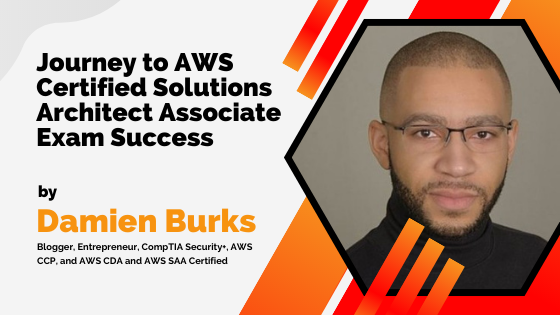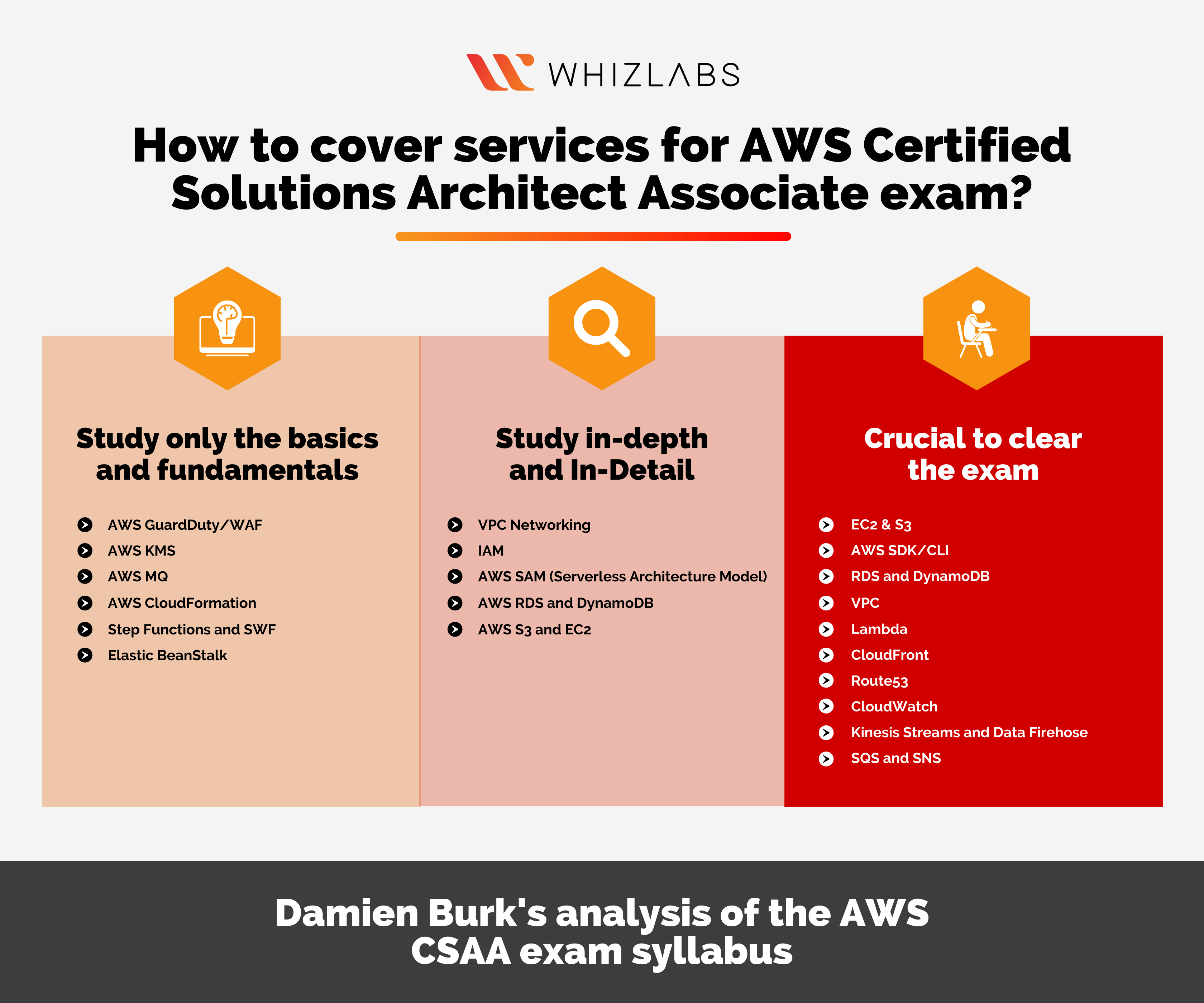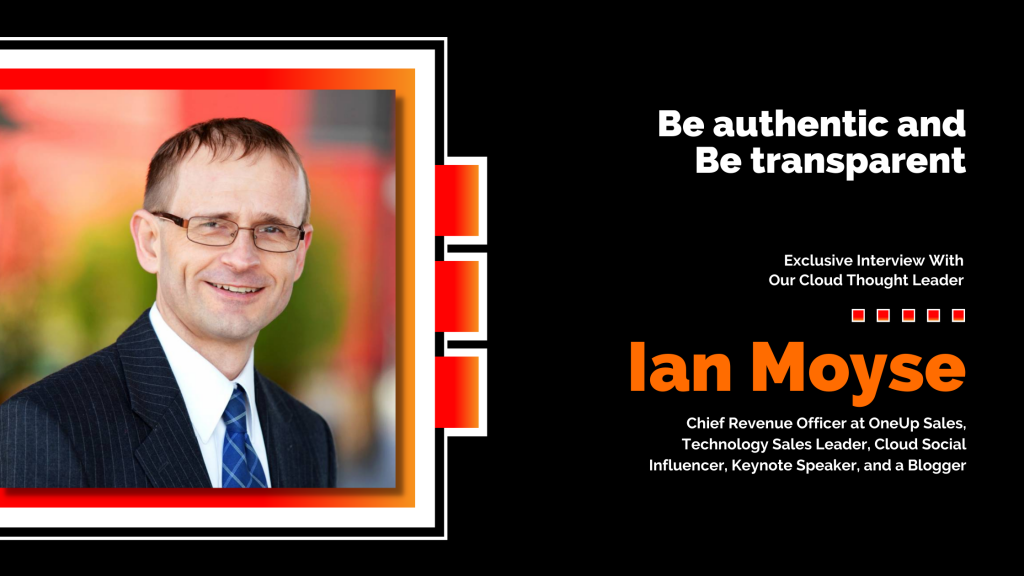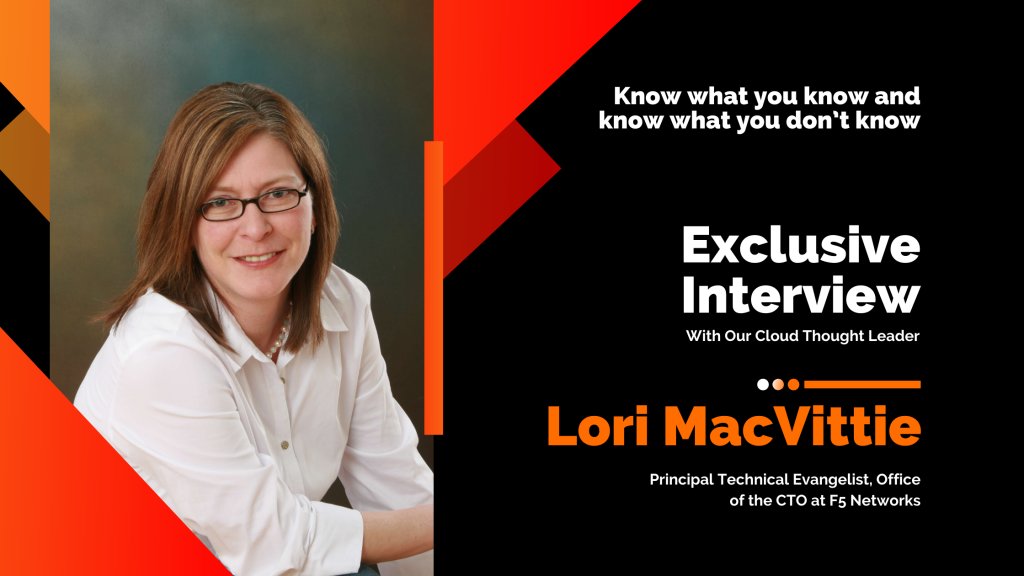Damien Burks is a tech enthusiast with many certifications in hand such as CompTIA Security+, AWS Certified Cloud Practitioner, AWS Certified Developer Associate, and AWS Certified Solutions Architect Associate. His passion for building and inventing new products led him to the computer science field. He started off with writing small codes and creating simple video games. Now, he specializes in Security Software engineering and aspires to be a DevSecOps engineer soon.
When we reached out to him, he was more than excited to share his study tips and insights on a certification path. In this article Damien talks about his journey to clear the AWS Certified Solutions Architect Associate Exam. He specifies how he started the preparation, his schedule and much more. Continue reading the article to understand Damien’s analysis of the AWS CSAA exam syllabus and topics.
1. How did you start your preparation for the AWS Certified Solutions Architect Associate exam?
I started the preparation for the AWS CSAA certification on the 5th of April 2021. A few days before, I researched the best course to take from those who have passed the C02 exam. I saw numerous responses applauding Stephane Marek for a job well done on explaining the concepts and whitepapers. Therefore, I decided to buy his course to prepare for the exam.
2. You have prepared for the exam while working. What was your schedule during your preparation period?
I started working a full-time job with a little bit of overtime included. So I would average about 1-2 hours on the weekdays, and about 3-4 hours on the weekends. I did this until I completed Stephane’s course, which took me about a month and a half. Afterward, I spent about 2-3 hours daily taking practice exams and reviewing notes up until the day of the exam.
Time spent for the preparation largely relies on experience level. It has been found that 2-3 weeks of preparation are sufficient if you have some prior AWS knowledge, but 4–6 weeks are appropriate if you are an absolute newcomer to AWS.
3. What role does a certification play in your career?
Certifications play a vital role in my career path. This certification enables me to design and implement cost effective and scalable solutions with AWS. It also gives me the ability to pivot into cloud-native opportunities such as cloud architecture, cloud security, and cloud engineering. As of now, my goal is to become a DevSecOps Architect, which is a cloud based position that requires cloud and security experience/certifications.
Check out Damien Burks’ blog here: Damien J Burks
4. Any advice on designing the learning path? What factors should one keep in mind?
For the AWS CSAA, you’ll want to ensure that you are doing the hands-on labs in parallel with taking notes for the chapters and lectures. Depending on the platform that you are using, the labs may be free. Keep in mind that each provider is different and AWS free-tier still costs to use certain services. In Stephane’s lectures, he will let you know if you should expect to spend some money for utilizing a service, such as CloudFormation. In order to get a better understanding of the services, you must practice in AWS. Whizlabs is a great source for that. With Whizlabs, you could create an account and have access to AWS labs for every service. Similar to how they’ve integrated with ACG, the accounts to log in to the console will be created for the lab environment when you start it. In addition, they also have labs for other platforms as well such as Azure and GCP.
Check out Whizlabs Learning Path – AWS Solutions Architect Associate now!
Afterward, you’ll want to ensure that you are leveraging other resources to help retain information. You will not be able to learn each service into detail without reading the FAQs and documentation. In your learning path, make sure time is carved out to review the FAQs for each service and the recommended whitepapers.
5. What are the main topics an aspirant should learn in depth for this exam?
The following topics should be covered into detail when preparing for this exam:
6. In your opinion, how difficult was the exam? On a scale of 1-5 may be!
Personally, I think this exam was pretty difficult due to my limited knowledge of system design and architecture. On a scale of 1 to 5, I’d give it about a 4. While I was taking the exam, I at least had 20 questions that I was unsure about or needed to review. Out of 65 questions in total, that would leave me with a score of 69%. That is a few points away from passing the exam.
Check out AWS Solutions Architect Associate Exam Questions & Answers!
7. How do you think aspirants should be studying about each service/subject for this exam? Some services/subjects that should be covered in-depth and for some, just a basic knowledge is enough. Can you list out those for the aspirants?
For this exam in particular, I would argue that you do not need to cover every service into detail. The services that you could just learn the fundamentals for based on my experience would be:
Most of the developer tools, which a few are listed above, you do not need to cover in-depth. On the other hand, any networking services, such as VPC and CloudFront, must be covered in-depth. In addition, AWS core services, such as EC2 and S3, must be covered in-depth as well. The list of services that I would consider are critical to passing the exam are listed below:
- EC2 & S3
- AWS SDK/CLI
- AWS RDS and DynamoDB
- VPC
- Lambda
- CloudFront
- Route53
- CloudWatch
- Kinesis Streams and Data Firehose
- SQS and SNS
8. Which service was easy to learn and which one was difficult? Did you follow any different strategies based on difficulties?
I struggled immensely with learning SQS. This service is used widely when application architectures are decoupled in AWS. For SQS, there are several different ways you could integrate it with various services in AWS, including SNS. For me to fully understand the service, I created my own SQS queues and integrated them with SNS. I also watched several videos about handling duplicate messages and the difference between a standard and FIFO queue. There are a lot of nuances between the two queues, and in order to distinguish which one would be most suitable for the use case you are provided with, you will need to remember and understand the difference between the two.
Read more on Whizlabs Annual Subscription Plan!
The easiest service for me to remember was Lambda. I found it incredibly fascinating and fairly straightforward as a developer. I view a Lambda function as a simple method that can execute various parts and services within AWS with ease. However, there are constraints that must be remembered, such as the maximum timeout.
9. Can you walk us through your certification path? Which certification did you choose first and why?
At the time I took my first AWS certification, I was in college and I knew that I wanted to pursue a career within DevSecOps. I also knew that AWS was increasing in popularity within the tech industry. Therefore, I went ahead and took the AWS Certified Cloud Practitioner. This was an introductory certification that allowed me to gain fundamental knowledge about AWS and all of the services without going in-depth about each one.
Shortly after graduating college and starting my career, I wanted to become more familiar with developer services within AWS. That’s when I decided to take the AWS Certified Developer – Associate. This was a huge leap for me, as it allowed me to explore the inner workings of the developer tools such as CodeDeploy and CloudFormation within AWS. In addition, this also challenged me to study and understand DevOps principles and CI/CD best practices while studying for the exam. Without understanding DevOps principles, CI/CD best practices, and basic application debugging and troubleshooting, I am certain that I would not have been able to pass the exam.
After obtaining the AWS CDA, I knew that the Solutions Architect – Associate must be obtained. Compared to the CDA, the SAA covered a wide range of services and focused more on how to build scalable and cost effective solutions with integrated AWS services than the developer tools themselves. This allowed me to get a deeper understanding of other services that were not covered in the CDA and how they could be integrated with one another.
10. In your opinion, what should a person keep in mind while choosing a certification to go for?
When choosing which certification to go for, you want to ensure that your career trajectory and path aligns with the certification.
Check out the 10 Top Paying Cloud Computing Certifications in 2021!
11. What are the tips and tricks you have for anyone who is preparing for a professional certification?
Unfortunately, I have not taken a professional certification yet to give tips or tricks for someone who is preparing for it.
12. You are aspiring to be a DevSecOps Architect. What attracts you to that job title?
To me, DevSecOps is the road less traveled for many developers who have a security interest. Before I graduated college, I was exposed to the cybersecurity industry and hacking. To make a long story short, I became incredibly intrigued with the industry and wanted to find a way to utilize my development and devops skills within security to protect the privacy and infrastructure of organizations.
DevSecOps architects give the organization recommendations on which processes or security controls need to be implemented to protect their current DevOps processes. They are also responsible for the implementation of those controls as well. In addition to my skill set, this is where I believe my passion and purpose lies.
13. Which certification are you aiming for next?
The next certification that I am going for is the AWS Certified Security Specialty.
Quote that motivates Damien everyday: “It’s the hardest thing in the world—to do what we want. And it takes the greatest kind of courage.” from Fountainhead by Ayn Rand
14. What is your advice for all cloud enthusiasts?
To all cloud enthusiasts, please continue to be curious and tinker with new technologies and services that are released by the cloud providers. There are multiple environments to choose from; Do not limit yourself to just one environment. Also, make sure you are comfortable with managing and navigating through several OSes. Get comfortable with Linux and Bash scripting. In addition, please ensure that you know at least one programming language (Python is my recommendation).
***
Thanks Damien for your valuable time. We wish you all the best for your future endeavors!
- Top 20 Questions To Prepare For Certified Kubernetes Administrator Exam - August 16, 2024
- 10 AWS Services to Master for the AWS Developer Associate Exam - August 14, 2024
- Exam Tips for AWS Machine Learning Specialty Certification - August 7, 2024
- Best 15+ AWS Developer Associate hands-on labs in 2024 - July 24, 2024
- Containers vs Virtual Machines: Differences You Should Know - June 24, 2024
- Databricks Launched World’s Most Capable Large Language Model (LLM) - April 26, 2024
- What are the storage options available in Microsoft Azure? - March 14, 2024
- User’s Guide to Getting Started with Google Kubernetes Engine - March 1, 2024





Awesome Interview! Damien provided awesome insight on his journey to become an AWS Solutions Architect.
Thanks Josh! We are glad that you loved it!